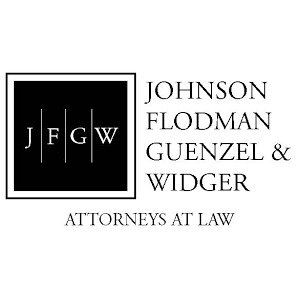Best Child Custody Lawyers in Lincoln
Share your needs with us, get contacted by law firms.
Free. Takes 2 min.
Free Guide to Hiring a Family Lawyer
List of the best lawyers in Lincoln, United States
About Child Custody Law in Lincoln, United States
Child custody law in Lincoln, United States, is designed to determine the most suitable living arrangement for a child following a divorce or separation. It concerns both the physical and legal responsibilities towards the child, ensuring that the child's best interests remain the guiding principle in any decision-making process. The courts typically favor joint custody arrangements, allowing both parents to participate in the child’s upbringing unless it is deemed detrimental to the child's well-being.
Why You May Need a Lawyer
There are numerous situations where seeking legal assistance in child custody matters may be necessary. These include contentious custody battles, relocation issues, allegations of neglect or abuse, need for modification of existing custody arrangements, or when facing an uncooperative co-parent. A lawyer can provide guidance on evidence gathering, court representation, and negotiation of custody terms, ensuring that your child's best interests are legally protected.
Local Laws Overview
In Lincoln, United States, child custody laws are influenced by Nebraska statutes that emphasize the child's best interests. Key aspects include the preference for joint legal custody, consideration of each parent's relationship with the child, and the child's educational and health needs. Lincoln courts also look at each parent's ability to foster a healthy relationship with the child, adjust to parental duties, and maintain stability. The courts may consider the child's preference if they are of sufficient age and maturity.
Frequently Asked Questions
What is the difference between legal custody and physical custody?
Legal custody refers to the right to make important decisions about the child's life, such as education and medical care, whereas physical custody involves the daily care of the child and where the child will primarily reside.
How does the court determine the best interests of the child?
The court evaluates factors such as the child's health and safety, emotional ties to each parent, each parent's ability to provide for the child, and the impact on the child's existing routine and environment.
Can a child express their preference in custody decisions?
Yes, if the child is deemed mature enough, the court may consider their preference, although it is not the determining factor in the decision.
Can custody arrangements be modified?
Yes, custody arrangements can be modified if there are significant changes in circumstances that affect the child's best interests, such as relocation or change in parental situation.
Is mediation required in custody cases?
Mediation is often encouraged or required to help parents resolve disputes without going to court. It provides a less adversarial and more cooperative approach to custody arrangements.
What happens if one parent violates custody arrangements?
If a parent fails to adhere to custody agreements, the other parent can take legal action, which may result in contempt of court charges or modification of custody terms.
How does relocation affect custody agreements?
Relocation can significantly impact custody arrangements and may require court approval if it affects the child's relationship with the other parent. The court considers the relocation's impact on the child’s best interests.
Do grandparents have custody or visitation rights?
Grandparents may seek visitation rights and, in some cases, custody if it is in the child's best interests, especially if the child's welfare is at risk with the biological parents.
Can unmarried parents obtain custody rights?
Yes, unmarried parents have the same rights regarding custody as married parents, with paternity often established to grant lawful custody and visitation rights.
What should I do if I suspect child abuse or neglect?
Report any suspected abuse or neglect to the relevant authorities immediately. Such claims are taken seriously and will be investigated thoroughly, potentially impacting custody decisions.
Additional Resources
For further assistance, individuals can reach out to local organizations such as the Nebraska Legal Aid, Family Law Resource Centers, or Child Advocacy groups. Governmental bodies like the Nebraska Department of Health and Human Services can also offer guidance and support.
Next Steps
If you require legal assistance in child custody matters, it is advisable to consult with a family lawyer experienced in Nebraska custody laws. Begin by gathering all relevant documents, including custody agreements, communication logs, and any evidence supporting your case. Schedule a consultation to discuss your situation and explore the legal pathways available to you. Additionally, consider mediation as a viable option for resolving disputes amicably.
Lawzana helps you find the best lawyers and law firms in Lincoln through a curated and pre-screened list of qualified legal professionals. Our platform offers rankings and detailed profiles of attorneys and law firms, allowing you to compare based on practice areas, including Child Custody, experience, and client feedback.
Each profile includes a description of the firm's areas of practice, client reviews, team members and partners, year of establishment, spoken languages, office locations, contact information, social media presence, and any published articles or resources. Most firms on our platform speak English and are experienced in both local and international legal matters.
Get a quote from top-rated law firms in Lincoln, United States — quickly, securely, and without unnecessary hassle.
Disclaimer:
The information provided on this page is for general informational purposes only and does not constitute legal advice. While we strive to ensure the accuracy and relevance of the content, legal information may change over time, and interpretations of the law can vary. You should always consult with a qualified legal professional for advice specific to your situation.
We disclaim all liability for actions taken or not taken based on the content of this page. If you believe any information is incorrect or outdated, please contact us, and we will review and update it where appropriate.








